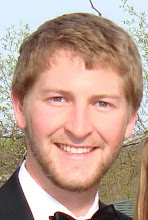Yesterday, I took the opportunity to sit on a meeting with a group of current CARE for AIDS clients from the Banana Hill center who have joined a micro-finance program. Micro-finance is one of those trends that seems great in theory, but sometimes gets a bad rap for how it actually plays out, so I wanted to see firsthand how our clients are responding.
The organization we are partnering with in Banana Hill is called DOREP, which stands for "Desert Oasis Resident Empowerment Program" (www.dorep.org). The name comes from the roots of the program in the arid Northeastern province of Kenya, but DOREP currently offers its services in almost all parts of the country. This group of 26 clients registered with a DOREP officer after a CFA seminar on finances a few months ago, at which point they formed a group together and agreed to a set of by-laws that govern how the group works. Since then, all the members of the group have met once a month with a DOREP official.
In each of these meetings (like the one I attended), the DOREP official first calls each member of the group up to a table to accept their savings. The group member meets with the official, as well as a Chairman, Secretary, and Treasurer, who are elected members of the group. These "officers" provide extra accountability for the DOREP official by keeping separate records of savings and loans that must match up with the official record. Most of the members brought between $3 and $6 to save for the month, which includes a $.50 fee for loan insurance that is paid each month. Several members weren't able to attend, but they sent their savings along with a trusted friend.
After collecting all of the money, though, the DOREP representative doesn't take the cash with him. Instead, the total amount collected on that day is offered to members of the group as an "advance" loan. This is a relatively small loan ($15-20) that is meant to be used as catalyst in an existing small business, and it must be paid back the following month with 10% interest. Only a few of the members will take this type of loan each month, because it is a relatively high interest rate and is not necessarily helpful in every circumstance. The idea, though, is that this method keeps the savings circulating among the group and out of the hands of the officials, and it can be very helpful for some members with the right type of business in place.
After members have saved for at least 3 months and reached a total savings of about $20, they can then receive a standard loan from DOREP. This can be given in cash or in the form of an agricultural project like a dairy goat or chickens. These loans are to be repaid within a year at a monthly interest rate of 1%. The interest collected is not appropriated by DOREP, though, but is instead given back to the members of the group at the end of the year as a cash dividend - another incentive to remain faithful to the group and stick to their commitments. Everyone who takes an advance loan or a standard loan must provide a valid government ID and also must have someone else to guarantee the loan, and if they don't repay the loan in time, the whole group must reconcile the balance. Especially in groups like CARE for AIDS clients where each member of the group knows each other, this creates a strong incentive for proper repayment.
It was really nice to see clients bringing their savings and taking advance loans in person - you could tell that they were excited by even the small amounts that they were bringing to save, and it seemed that each person was proud of their contributions. In a society where most people live a hand-to-mouth existence, it's encouraging to see our clients grasping the value in saving and planning for the future!

Tuesday, November 16, 2010
Subscribe to:
Post Comments (Atom)







Hi Nick, I'm Nur from Surabaya, Indonesia. Friends of mine are now serving in a HIV-infected community here in Surabaya. They have helped them to start small business such as opening a small store and making some crafts. However the businesses don't work well because most people are still afraid to connect with them or their products. Any ideas of what kind of business that would fit for them? You can reach me at nurhayatna1989@gmail.com. Thanks for your attention and may God bless you and your ministry abundantly!
ReplyDeleteI heard about DOREP froma friend and Im really interested I know people less priviledged in society. I've spoken to a DOREP official and now Im organising a group so we may get started. I know God is on our side and things will work just fine. You are blessed mightly to think of such a great way to help those in need.
ReplyDeleteI heard about DOREP during a baseline survey in Kieni West District,Nyeri County. One of the DOREP's member was my respondent,the way he described it with passion and sense of belonging motivated me to learn more about DOREP. I hope we are going to work with DOREP in our youth enterprises programme soon.
ReplyDelete